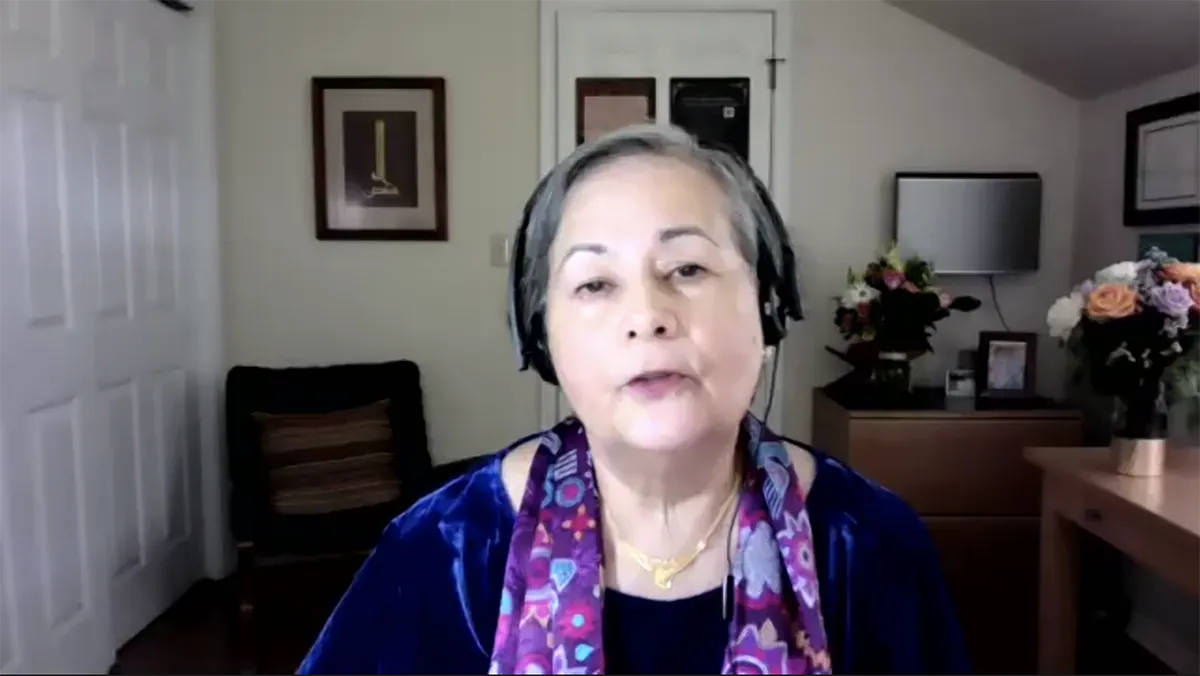The Department of Politics recently brought together colleagues, current students and alumni at a special symposium held to celebrate the career of Asma Barlas, emerita professor of politics, who retired in 2020 after joining the college in 1991. In addition to her work in the classroom, she served as the founding director of the Center for the Study of Culture, Race, and Ethnicity (CSCRE) from 1999 to 2002 and again from 2006 to 2015.
The virtual symposium, at which Barlas presented the keynote address, was titled “Reflections on Identity, Race, Colonialism and Islam.” An internationally known expert on women in Islamic societies, she is the author of “‘Believing Women’ in Islam: Unreading Patriarchal Interpretations of the Qur’an.” Her many honors include being appointed as the Spinoza Chair in Philosophy at the University of Amsterdam and receiving the Ithaca College Faculty Excellence Award.
